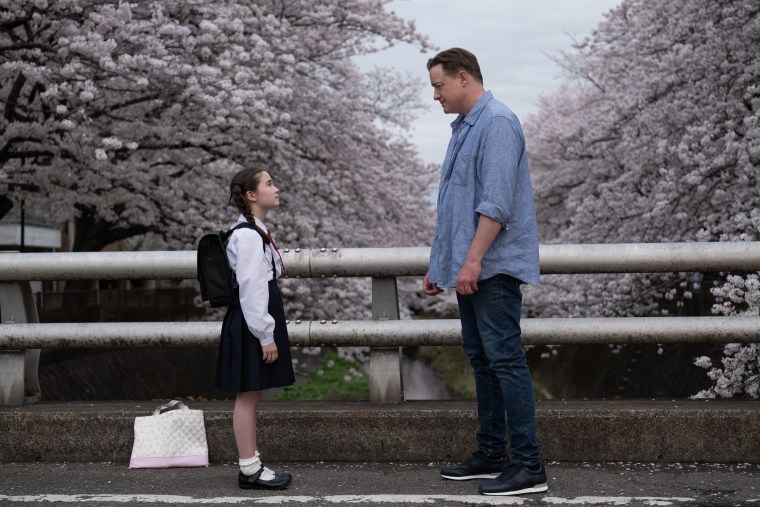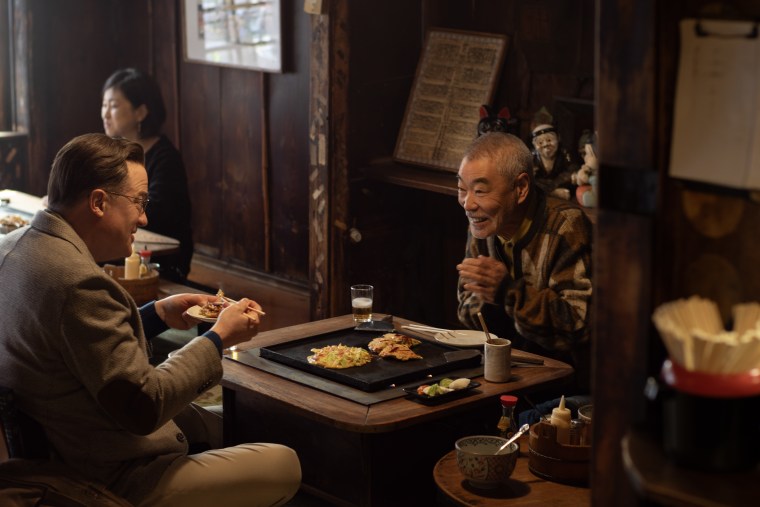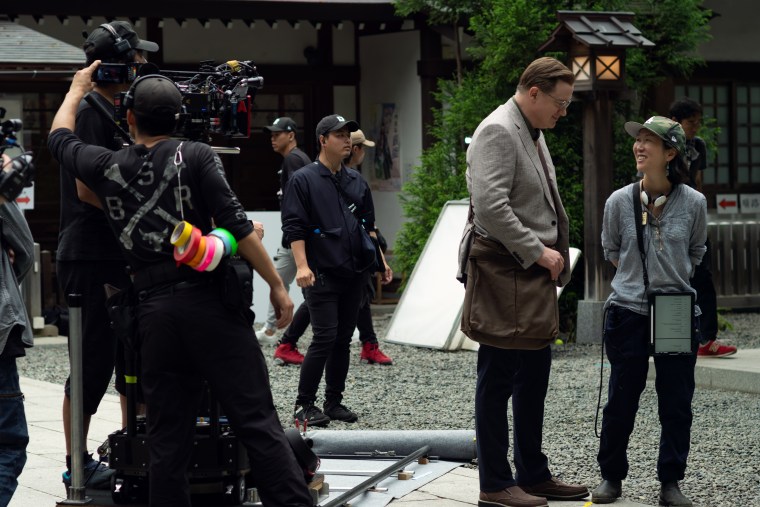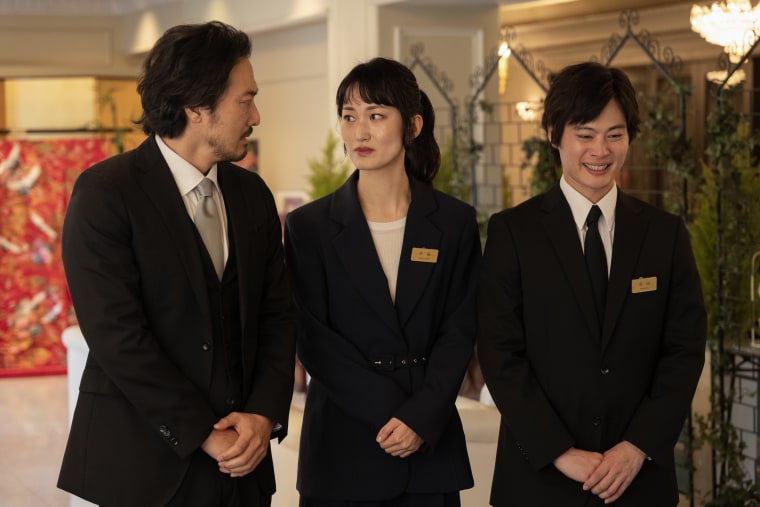Spoilers ahead for “Rental Family”
Brendan Fraser's new film. “Family for rent” explores belonging, authenticity and one unconventional business model.
The Oscar winner portrays Phillip, a struggling middle-aged American living in Tokyo and playing a series of small gigs in hopes of getting his next big break. Then he gets the opportunity to start a business that will change his life forever: a “family rental” agency.
Essentially, actors like Philip are paid to play backup roles in the lives of strangers. They may be hired to pose as family members, friends, partners, people they had affairs with and now have to apologize to their spouses, or whatever else the client needs.
“Rent-a-Family” is not based on a true story. However, it does shed light on the actual family rental business in Japan.
Director Hikari told TODAY.com that after learning about these services, she found that “people are really craving connection” amid feelings of isolation.
The film shows an initially hesitant Philip after he is hired as a surrogate bride for a woman who wants to organize a wedding so she can move to another country with her partner.
He is also “booked” to play the role of the long-lost father to a young girl named Mia (Shannon Mahina Gorman). Her mother Hitomi (Shino Shinozaki) believes that if her daughter has a complete family, her chances of getting into a prestigious school will be higher.

Then the daughter of an aging Japanese actor, Kikuo (Akira Emoto), hires Philip to pose as a journalist and interview him before he loses his memory. While he pretends to write a story about a former star, they begin a friendship.
In 2018, director Hikari began researching the “family rental industry” and discovered that it originated in the 80s.
“There are currently about 300 companies in Japan,” the director said in a press release. “In a big city like Tokyo, or even in a country town, you can feel so isolated… Every person I spoke to was looking for a connection. Even though they are paying for the service, they find friendship in the two or three hours they spend together. And the actors who become surrogates are also 100% invested in the relationship and find their own connection to the community. The roles may seem fake, but the emotions are real.”

In a conversation with TODAY.com, Hikari recalls the moment she realized that rental services were “really doing something very important in people's lives.”
According to her, there was a man who could not contact his daughter for a long time, “and before his death he really wanted to be reunited, but could not.”
“So he hired someone who looked like his daughter and asked her to come to the hospital so he (could) apologize and tell her how much he loved her before he passed away,” she says.

Actor Mari Yamamoto, who plays Aiko, an employee at a family rental agency, believes people are looking for a “temporary solution” when they rent someone.
Per TODAY.com, “What starts out as a transactional relationship turns into something genuine. And I think that's the beauty of this service. People we've talked to who actually work in this industry have told us stories about how they get so much out of providing this service.”
Ryuichi Ichinokawa, founder of real business Heart Project in Japan, said Associated Press that he hired dozens of people who posed as journalists at vacant events, and people who posed as significant others and accompanied them to special events or meetings, and posed as family members.
“I serve people. I hope they will be happy,” Ichinokawa told the publication, stressing that clients find the service comforting and healing. “I don't feel like I'm acting. I get really angry if the situation calls for it.”
Actor Takehiro Hira, who plays Shinji, the owner of a rental family, calls the services a step toward healing in an interview with TODAY.com.
“Sometimes it becomes too much. Sometimes (they) just can't take it anymore. So instead of seeking professional help… and you might be embarrassed, you can rent and use these services to patch up the wound.”
Hira also spoke to someone who works at the agency and received a request from an older woman who had sought the services of a younger man.
“Just sleep in the next room so she feels safe and comfortable,” says the actor. “I have an 80-year-old mother living alone in Tokyo, and she's not asking me to come home. But maybe on some lonely night she might feel (scared), so it kind of puts everything into context.”
Miwa Yasui, a professor at the University of Chicago who also studies how culture affects mental health, told AP Japan is struggling with loneliness, high suicide rates and the stigma of mental illness. Yasui noted that Japan as a collective culture tends to hide mental health issues, leaving adults under pressure to maintain harmony and take care of the family.
Additionally, Chikako Ozawa-de Silva, author of “The Anatomy of Loneliness: Suicide, Social Connection, and the Search for Meaning in Relationships in Modern Japan” and a professor at Emory University, also told the AP that the family's rental business is “covering up” a deeper problem.
“I’m not against it,” Ozawa de Silva said. “If people can buy time by renting a family while also striving for much better long-term solutions, I think renting a family can be a very, very useful thing.”

Hikari's goal was to make viewers question what role they would hire someone to play in their lives, while also sharing a reminder on how to communicate with real people.
“I just wanted to make a film that would bring audiences together,” she shares with TODAY.com. “And have them look inside themselves or pick up the phone and say, 'Hey, what are you doing?'”
She also wanted people to understand the nuances of business and how it can be interpreted in different countries.
“Here in America, too, there are people who volunteer to be around older people who want someone to hold their hand and watch them go on their next journey,” she says. “They are very different things, but I think every culture has certain (similar) things.”
What Hikari says is most “beautiful” is that people just want to “be there for each other.”








